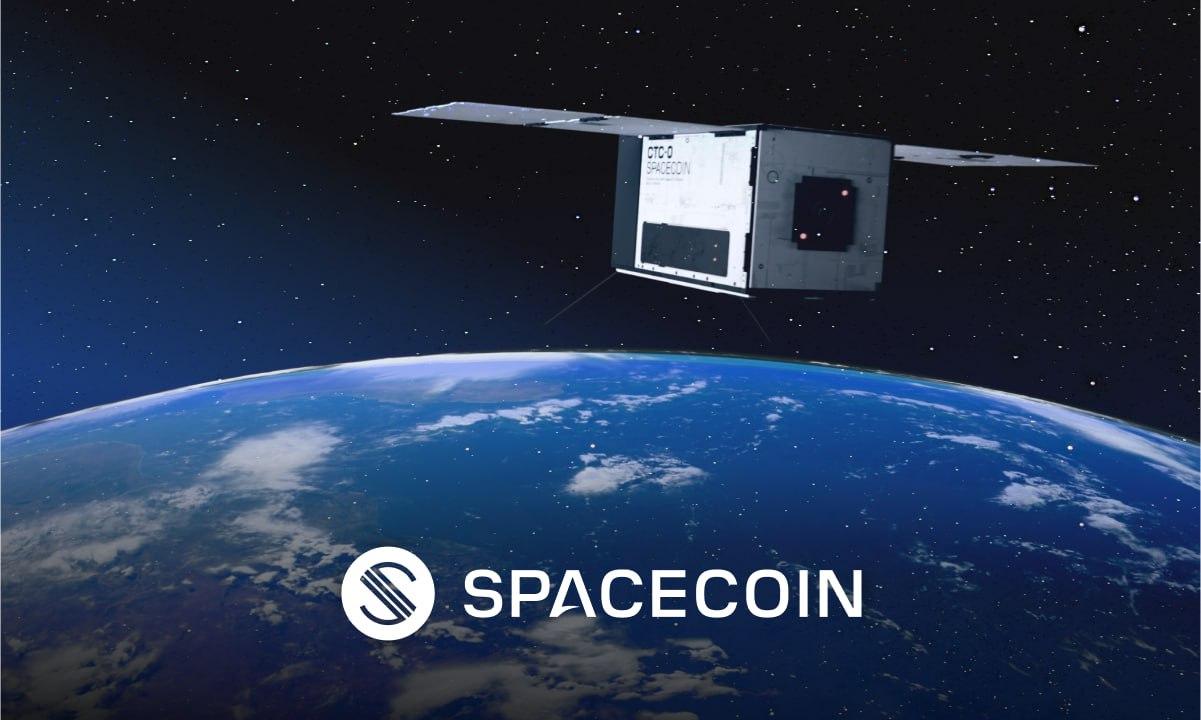Spacecoin Launches First Satellite for Decentralized Global Connectivity

Spacecoin Launches First Satellite for Decentralized Global Connectivity
Spacecoin has successfully deployed its first satellite, marking a significant step toward creating a decentralized space-based network that allows for secure, censorship-resistant communication. The company recently established regular communication with its debut satellite, launched on SpaceX’s Falcon 9 rideshare mission to low Earth orbit on December 21, 2024.
A New Era of Space Connectivity
Spacecoin’s first satellite, CTC-0, is designed to test technology for a decentralized network that will allow users to communicate directly with one another, bypassing traditional centralized authorities like governments and telecom companies. By utilizing the Creditcoin blockchain platform, Spacecoin aims to provide a secure and transparent way to track satellite operations and manage payments across a constellation of small satellites.
“We’ve established regular communication with the satellite,” said Spacecoin founder Tae Oh. “We’re excited to begin testing our technology and demonstrating space-enabled text messaging through specialized antennas, with the ultimate goal of enabling communication directly to standard smartphones.”
Decentralized Platform for Global Connectivity
Spacecoin’s vision is to build a network where anyone who invests in deploying satellites can become a connectivity provider. By participating in the network, investors can earn a pro-rata share of revenues based on satellite usage. This decentralized approach eliminates the need for third-party permissions, such as those from governments or telecommunications companies, making the network more accessible and less susceptible to censorship.
The satellite network is designed to provide coverage to regions that are traditionally underserved or lack reliable connectivity. For instance, in Nigeria, where satellite connectivity is being tested, local telecommunications companies can extend their reach beyond national borders by joining the broader constellation. As satellites pass over different regions, they can provide connectivity to new customers, increasing the value of their investment.
Growing the Satellite Constellation
Spacecoin’s initial satellite, CTC-0, is based on the 8U model developed by Bulgarian manufacturer Endurosat. The company plans to launch CTC-1 next year, which will be a 16U model, followed by the transition to microsatellites with enhanced performance. Spacecoin has also announced plans to open-source its satellite payload designs, encouraging other manufacturers and companies to join the network.
The company’s long-term vision includes expanding the constellation with more satellites to provide reliable connectivity at data rates that can eventually support voice calls. Early satellite tests will offer text messaging capabilities and connectivity for small devices, with an eye on higher data rates in the future.
Addressing Connectivity Gaps in Emerging Markets
One of the primary goals of Spacecoin’s decentralized network is to provide internet access to the 2.6 billion people worldwide who lack connectivity. In particular, Spacecoin is focusing on low data rate business cases in regions like India, where millions of fishermen in remote areas have no access to reliable communication while at sea. The company aims to offer basic SMS capabilities to improve safety and communication for these underserved populations.
By leveraging blockchain protocols and sharing satellite infrastructure, Spacecoin plans to reduce the cost of internet services in emerging markets to as low as $1-2 per user per month. Initial tests of the system will be conducted in Nigeria, which has already approved Spacecoin’s Mobile Satellite Services (MSS) spectrum license in the S and L bands.
Competing in the Satellite Connectivity Market
Spacecoin is not alone in its mission to provide satellite-based connectivity. Established players like Viasat and Iridium, as well as emerging ventures using cellular frequencies for direct-to-smartphone connectivity, are also vying for a share of the global satellite internet market. However, Spacecoin’s unique approach to decentralizing the network through blockchain technology sets it apart from traditional providers.
As the company moves forward with its plans to expand its satellite constellation and improve connectivity, Spacecoin aims to address the pressing need for more affordable and accessible communication solutions, particularly in remote and underserved regions.
In the coming years, Spacecoin’s innovative decentralized space network could revolutionize the way we connect, communicate, and share information, paving the way for a more connected and inclusive world.





